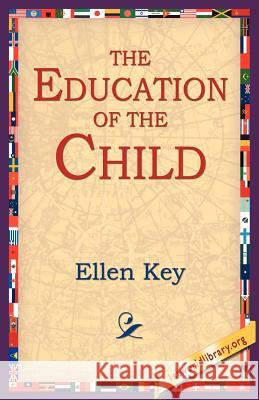The Education of the Child » książka
The Education of the Child
ISBN-13: 9781595406286 / Angielski / Miękka / 2004 / 68 str.
The Education of the Child
ISBN-13: 9781595406286 / Angielski / Miękka / 2004 / 68 str.
(netto: 43,78 VAT: 5%)
Najniższa cena z 30 dni: 45,97
ok. 16-18 dni roboczych.
Darmowa dostawa!
Purchase one of 1st World Library's Classic Books and help support our free internet library of downloadable eBooks. Visit us online at www.1stWorldLibrary.ORG - - Goethe showed long ago in his Werther a clear understanding of the significance of individualistic and psychological training, an appreciation which will mark the century of the child. In this work he shows how the future power of will lies hidden in the characteristics of the child, and how along with every fault of the child an uncorrupted germ capable of producing good is enclosed. "Always," he says, "I repeat the golden words of the teacher of mankind, 'if ye do not become as one of these, ' and now, good friend, those who are our equals, whom we should look upon as our models, we treat as subjects; they should have no will of their own; do we have none? Where is our prerogative? Does it consist in the fact that we are older and more experienced? Good God of Heaven Thou seest old and young children, nothing else. And in whom Thou hast more joy, Thy Son announced ages ago. But people believe in Him and do not hear Him - that, too, is an old trouble, and they model their children after themselves." The same criticism might be applied to our present educators, who constantly have on their tongues such words as evolution, indivi-duality, and natural tendencies, but do not heed the new commandments in which they say they believe. They continue to educate as if they believed still in the natural depravity of man, in original sin, which may be bridled, tamed, suppressed, but not changed.
Purchase one of 1st World Librarys Classic Books and help support our free internet library of downloadable eBooks. Visit us online at www.1stWorldLibrary.ORG - - Goethe showed long ago in his Werther a clear understanding of the significance of individualistic and psychological training, an appreciation which will mark the century of the child. In this work he shows how the future power of will lies hidden in the characteristics of the child, and how along with every fault of the child an uncorrupted germ capable of producing good is enclosed. "Always," he says, "I repeat the golden words of the teacher of mankind, if ye do not become as one of these, and now, good friend, those who are our equals, whom we should look upon as our models, we treat as subjects; they should have no will of their own; do we have none? Where is our prerogative? Does it consist in the fact that we are older and more experienced? Good God of Heaven! Thou seest old and young children, nothing else. And in whom Thou hast more joy, Thy Son announced ages ago. But people believe in Him and do not hear Him - that, too, is an old trouble, and they model their children after themselves." The same criticism might be applied to our present educators, who constantly have on their tongues such words as evolution, indivi-duality, and natural tendencies, but do not heed the new commandments in which they say they believe. They continue to educate as if they believed still in the natural depravity of man, in original sin, which may be bridled, tamed, suppressed, but not changed.











